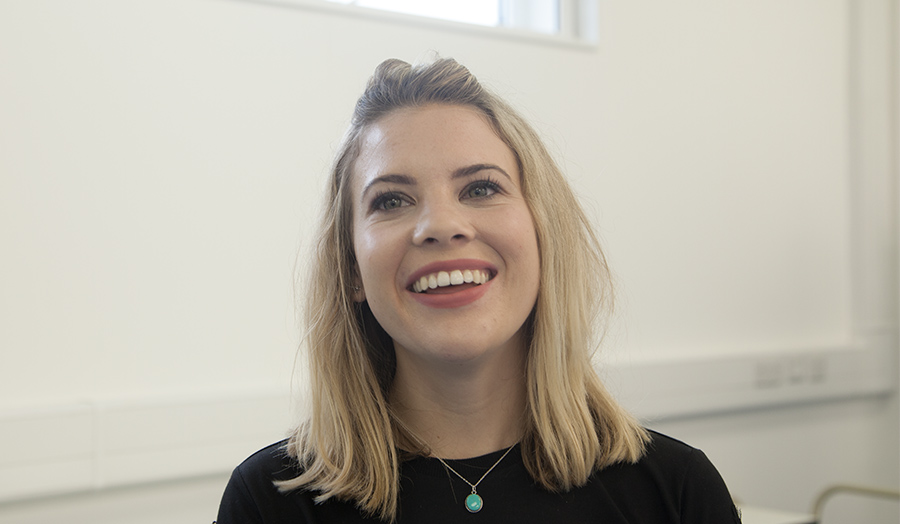We talk to Annina Whipp, a London Met graduate with a Dietetics and Nutrition BSc (Hons) degree. Since graduating, she initially worked as a graduate entrant dietitian with Healthcare Corporation of America, and is now a Band 5 dietitian with London North West Healthcare.
Why did you choose to study at London Met?
I discovered London Met ran a four-year extended degree in dietetics and nutrition [the University now runs a range of science-related foundation year degree programmes], which was ideal for me, as I wanted to go into this area but didn’t have the necessary science qualifications for a standard four-year dietetics course. I read up about London Met’s dietetics department and was really impressed.
What did you think of the facilities?
The facilities were really excellent – there was everything there you needed to make the connection between lectures and practical work. There were bod pods and tanita scales for body fat analysis for example, which is what is used within the nutrition research industry. We also had exams in model rooms so we could gain skills and experience with patients.
Were there opportunities for practical work or industry placements?
The course involved three different placements of one week, 12 weeks and 14 weeks, so we were able to gain an excellent knowledge of nutrition and dietetics in the acute and community settings and within a local public health department. I was placed at the Whittington hospital and within the community dietetics teams based at Homerton University hospital and Bromley Healthcare, so it was also useful gaining experience in three different hospitals with different cultures.
What did you like best about your course?
I think the best thing for me was the support from the staff – it was four tough years so to get unlimited support, access to great facilities and practical placement opportunities made it a really comprehensive course.
Did anything surprise you about your course or London Met?
The facilities – I didn’t ever think that as a student I’d get access to that kind of equipment.
Were you in any clubs or societies here?
I was in the Nutrition Society, where we organised for relevant external speakers to come in and give talks, so as students we felt up-to-date with the industry.
What do you like about life in London particularly?
The best part is meeting and working with people from all sorts of different backgrounds.
Your tutor mentioned you had won an award – can you tell us a bit more about that?
I presented my undergraduate dissertation project at the British Association of Parenteral and Enteral Nutrition (BAPEN) conference in 2016 and was awarded the best poster presentation of the conference. This is a national conference for healthcare professionals working in nutrition support, and I had to present alongside experienced doctors, nurses, pharmacists and other dietitians. The dissertation was looking at the link between feeding ability and nutritional status in older adults residing in care homes.
Can you tell us about your current job?
As a band 5 dietitian, I am currently working on the acute and rehabilitation stroke wards. I particularly enjoy working with other health professionals and also with the patient’s family to help patients meet their nutritional requirements and aid recovery. At this level I continue to develop my knowledge and clinical experience daily, yet am able to work with more autonomy. It is really rewarding working with people and getting to put into practice what you have learnt.

